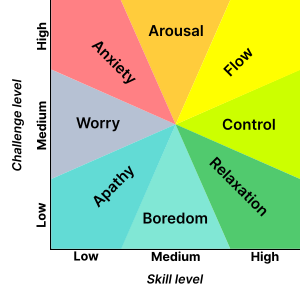Since most of us are finding extra time these days, I thought I would do a little house cleaning of a psychological sort. I stumbled upon a free course that is touted as Yale's most popular and heavily attended in its history called, The Science of Well-Being. And, because it is based on scientific data, and not wishy-washy emotion, or what my brother might deem as well-meaning 'platitudes', we are assured that we can take its lesson more seriously.
I'm only on week two of the course, but it's principle message is based on the findings derived from what is known 'positive-psychology', which is essentially a focus on the redeeming traits of one's essential character instead of those aspects that are most dysfunctional. What I find interesting about this and much of what the science is suggesting in this course, is that oftentimes how we respond intuitively is generally pretty unhelpful for encouraging a sense of well-being, which the course defines as a state experienced when we have a combination of positive emotion, engagement, relationships, meaning, and accomplishment or PERMA.
There was a time in my youth when I was convinced I was my own worst enemy, and it disturbed me that my own reactions and thoughts could potentially be so corrosive to my sense of well-being. Turns out I was just being a typical human perhaps with a genetic predisposition to introspect too damn much. Practicing art, was one path out of the morass of my mind, that meant well, but didn't seem to know itself hardly at all.
Engagement, meaning and accomplishment are all possible qualities manifest in any act of creation. Particularly, the sort of engagement that removes the ego, or what is often referred to as a 'flow state'.
I first encountered this term when I would hear people describe certain feats of prominent athletes. An athlete in flow state is said to be 'in the zone' of his or her performance which objectively seems particularly excellent and automatic. It is a distinction of a caliber greater than just normal everyday effort both outwardly and inwardly as it represents the ideal intersection of ability and challenge as colorfully illustrated by the info-graphic below pulled from the annals of Google.

The ideal state for well-being, or flow, is found where both the challenge and the skill are met at high levels. To be progressing, means we always have to keep our challenges realistically matched to our skills, but still rigorous enough that we find them engaging. This balance is what keeps us focused on the task.
With increasing skill, but insufficient challenge, we encounter boredom, which is the antithesis of well-being, as we are not savoring the fruits of this life, and are instead waiting for an experience to pass. But with too little skill and a great degree of challenge, we experience anxiety and self-doubt. Probably the most pernicious place to be might in fact be at the middle, where we find comfort in the control we have, but it offers no promise for improvement or engagement.
In art school parlance, I interpret the flow state as akin to being 'on the form'. This is something I will write further about later, but essentially it describes a practice of trying to synchronize the motion of your brush or instrument of choice, with the visual landscape of your subject. You cannot conceptually get 'on the form' if you do not have a foothold on your subject and can feel how each stroke aligns with that sense. It's a bit esoteric, but you know the experience when you are having it, because you are engrossed to the level that the more rote aspects of the work happen in the background, leaving time for a deeper correspondence with what is absorbed through the senses.
This deeper connection has psychological resonance. For me, it gives me some manner of purpose and appreciation for what the senses can afford us and humility for how much is given without expectation of return. It is also a way I can 'play to my strengths' which is fundamental to the tenets of positive psychology. I am not trying to do those things which I am least capable of, but am trying to sharpen existing skills through dedicated practice with the hope that I might be able to pay attention long enough to experience what it means to be well and alive and uniquely myself.
